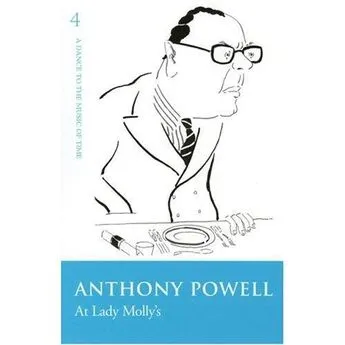Anthony Trollope - Autobiography of Anthony Trollope
- Название:Autobiography of Anthony Trollope
- Автор:
- Жанр:
- Издательство:неизвестно
- Год:неизвестен
- ISBN:нет данных
- Рейтинг:
- Избранное:Добавить в избранное
-
Отзывы:
-
Ваша оценка:
Anthony Trollope - Autobiography of Anthony Trollope краткое содержание
EBook of Autobiography of Anthony Trollope by Anthony Trollope (www.anthonytrollope.com)
Autobiography of Anthony Trollope - читать онлайн бесплатно ознакомительный отрывок
Интервал:
Закладка:
perhaps after very much good work, have distressed their audience
because they have gone on with their work till their work has become
simply a trade with them. Need I make a list of such, seeing that
it would contain the names of those who have been greatest in the
art of British novel-writing? They have at last become weary of
that portion of a novelist's work which is of all the most essential
to success. That a man as he grows old should feel the labour of
writing to be a fatigue is natural enough. But a man to whom writing
has become a habit may write well though he be fatigued. But the
weary novelist refuses any longer to give his mind to that work of
observation and reception from which has come his power, without
which work his power cannot be continued,--which work should
be going on not only when he is at his desk, but in all his walks
abroad, in all his movements through the world, in all his intercourse
with his fellow-creatures. He has become a novelist, as another has
become a poet, because he has in those walks abroad, unconsciously
for the most part, been drawing in matter from all that he has seen
and heard. But this has not been done without labour, even when
the labour has been unconscious. Then there comes a time when he
shuts his eyes and shuts his ears. When we talk of memory fading
as age comes on, it is such shutting of eyes and ears that we mean.
The things around cease to interest us, and we cannot exercise
our minds upon them. To the novelist thus wearied there comes the
demand for further novels. He does not know his own defect, and
even if he did he does not wish to abandon his own profession. He
still writes; but he writes because he has to tell a story, not
because he has a story to tell. What reader of novels has not felt
the "woodenness" of this mode of telling? The characters do not
live and move, but are cut out of blocks and are propped against the
wall. The incidents are arranged in certain lines--the arrangement
being as palpable to the reader as it has been to the writer--but
do not follow each other as results naturally demanded by previous
action. The reader can never feel--as he ought to feel--that only
for that flame of the eye, only for that angry word, only for that
moment of weakness, all might have been different. The course of
the tale is one piece of stiff mechanism, in which there is no room
for a doubt.
These, it may be said, are reflections which I, being an old
novelist, might make useful to myself for discontinuing my work,
but can hardly be needed by those tyros of whom I have spoken. That
they are applicable to myself I readily admit, but I also find that
they apply to many beginners. Some of us who are old fail at last
because we are old. It would be well that each of us should say to
himself,
"Solve senescentem mature sanus equum, ne
Peccet ad extremum ridendus."
But many young fail also, because they endeavour to tell stories
when they have none to tell. And this comes from idleness rather
than from innate incapacity. The mind has not been sufficiently at
work when the tale has been commenced, nor is it kept sufficiently
at work as the tale is continued. I have never troubled myself much
about the construction of plots, and am not now insisting specially
on thoroughness in a branch of work in which I myself have not been
very thorough. I am not sure that the construction of a perfected
plot has been at any period within my power. But the novelist has
other aims than the elucidation of his plot. He desires to make
his readers so intimately acquainted with his characters that the
creatures of his brain should be to them speaking, moving, living,
human creatures. This he can never do unless he know those fictitious
personages himself, and he can never know them unless he can live
with them in the full reality of established intimacy. They must
be with him as he lies down to sleep, and as he wakes from his
dreams. He must learn to hate them and to love them. He must argue
with them, quarrel with them, forgive them, and even submit to them.
He must know of them whether they be cold-blooded or passionate,
whether true or false, and how far true, and how far false. The
depth and the breadth, and the narrowness and the shallowness of
each should be clear to him. And, as here, in our outer world, we
know that men and women change,--become worse or better as temptation
or conscience may guide them,--so should these creations of his
change, and every change should be noted by him. On the last day
of each month recorded, every person in his novel should be a month
older than on the first. If the would-be novelist have aptitudes
that way, all this will come to him without much struggling;--but
if it do not come, I think he can only make novels of wood.
It is so that I have lived with my characters, and thence has come
whatever success I have obtained. There is a gallery of them, and
of all in that gallery I may say that I know the tone of the voice,
and the colour of the hair, every flame of the eye, and the very
clothes they wear. Of each man I could assert whether he would have
said these or the other words; of every woman, whether she would
then have smiled or so have frowned. When I shall feel that this
intimacy ceases, then I shall know that the old horse should be
turned out to grass. That I shall feel it when I ought to feel it,
I will by no means say. I do not know that I am at all wiser than
Gil Blas' canon; but I do know that the power indicated is one without
which the teller of tales cannot tell them to any good effect.
The language in which the novelist is to put forth his story, the
colours with which he is to paint his picture, must of course be to
him matter of much consideration. Let him have all other possible
gifts,--imagination, observation, erudition, and industry,--they
will avail him nothing for his purpose, unless he can put forth
his work in pleasant words. If he be confused, tedious, harsh, or
unharmonious, readers will certainly reject him. The reading of
a volume of history or on science may represent itself as a duty;
and though the duty may by a bad style be made very disagreeable,
the conscientious reader will perhaps perform it. But the novelist
will be assisted by no such feeling. Any reader may reject his
work without the burden of a sin. It is the first necessity of his
position that he make himself pleasant. To do this, much more is
necessary than to write correctly. He may indeed be pleasant without
being correct,--as I think can be proved by the works of more than
one distinguished novelist. But he must be intelligible,--intelligible
without trouble; and he must be harmonious.
Any writer who has read even a little will know what is meant by
the word intelligible. It is not sufficient that there be a meaning
that may be hammered out of the sentence, but that the language
should be so pellucid that the meaning should be rendered without
an effort of the reader;--and not only some proposition of meaning,
but the very sense, no more and no less, which the writer has intended
to put into his words. What Macaulay says should be remembered by
all writers: "How little the all-important art of making meaning
pellucid is studied now! Hardly any popular author except myself
thinks of it." The language used should be as ready and as efficient
a conductor of the mind of the writer to the mind of the reader
as is the electric spark which passes from one battery to another
battery. In all written matter the spark should carry everything;
but in matters recondite the recipient will search to see that
he misses nothing, and that he takes nothing away too much. The
novelist cannot expect that any such search will be made. A young
writer, who will acknowledge the truth of what I am saying, will
often feel himself tempted by the difficulties of language to
tell himself that some one little doubtful passage, some single
collocation of words, which is not quite what it ought to be, will
not matter. I know well what a stumbling-block such a passage may
be. But he should leave none such behind him as he goes on. The
habit of writing clearly soon comes to the writer who is a severe
critic to himself.
As to that harmonious expression which I think is required, I shall
find it more difficult to express my meaning. It will be granted, I
think, by readers that a style may be rough, and yet both forcible
and intelligible; but it will seldom come to pass that a novel written
in a rough style will be popular,--and less often that a novelist
who habitually uses such a style will become so. The harmony which
is required must come from the practice of the ear. There are few
ears naturally so dull that they cannot, if time be allowed to them,
decide whether a sentence, when read, be or be not harmonious. And
the sense of such harmony grows on the ear, when the intelligence
has once informed itself as to what is, and what is not harmonious.
The boy, for instance, who learns with accuracy the prosody of a
Sapphic stanza, and has received through his intelligence a knowledge
of its parts, will soon tell by his ear whether a Sapphic stanza
be or be not correct. Take a girl, endowed with gifts of music,
well instructed in her art, with perfect ear, and read to her such
a stanza with two words transposed, as, for instance--
Mercuri, nam te docilis magistro
Movit Amphion CANENDO LAPIDES,
Tuque testudo resonare septem
Callida nervis--
and she will find no halt in the rhythm. But a schoolboy with
none of her musical acquirements or capacities, who has, however,
become familiar with the metres of the poet, will at once discover
the fault. And so will the writer become familiar with what is
harmonious in prose. But in order that familiarity may serve him
in his business, he must so train his ear that he shall be able
to weigh the rhythm of every word as it falls from his pen. This,
when it has been done for a time, even for a short time, will become
so habitual to him that he will have appreciated the metrical duration
of every syllable before it shall have dared to show itself upon
paper. The art of the orator is the same. He knows beforehand how
each sound which he is about to utter will affect the force of his
climax. If a writer will do so he will charm his readers, though
his readers will probably not know how they have been charmed.
In writing a novel the author soon becomes aware that a burden
of many pages is before him. Circumstances require that he should
cover a certain and generally not a very confined space. Short novels
are not popular with readers generally. Critics often complain of
the ordinary length of novels,--of the three volumes to which they
are subjected; but few novels which have attained great success in
England have been told in fewer pages. The novel-writer who sticks
to novel-writing as his profession will certainly find that this
burden of length is incumbent on him. How shall he carry his burden
Читать дальшеИнтервал:
Закладка:








